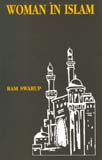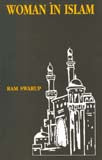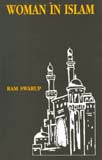Woman in Islam
Woman in Islam is backordered and will ship as soon as it is back in stock.
Couldn't load pickup availability
Genuine Products Guarantee
Genuine Products Guarantee
We guarantee 100% genuine products, and if proven otherwise, we will compensate you with 10 times the product's cost.
Delivery and Shipping
Delivery and Shipping
Products are generally ready for dispatch within 1 day and typically reach you in 3 to 5 days.
Book Details
-
Publisher: ADITYA PRAKASHAN Indological Publishers & Booksellers
-
ISBN 13: 9789385485091
-
ISBN 10: 9385485091
-
Edition: New Delhi, 2000
-
Year: 2000
-
Language: English
-
Subject(s): Religion, Voice of India
About the Book
This study explores the status of women under Islam, focusing on Islamic laws related to marriage, divorce, dower, polygamy, and concubinage—institutions that were once vital to Islamic political and imperial expansion. The author suggests that while Islam inherited a society where women held a low position, the situation worsened under Islam as these practices were codified as divine commands.
The book argues that women's problems in Islam today are more ideological than legal, stemming from a theological framework that fundamentally devalues women. Despite occasional teachings in the Quran advocating kind treatment of women, they exist within a framework that upholds male superiority in both moral and metaphysical terms. The author emphasizes that meaningful reform within Islam is unlikely unless it is rooted in a radical rethinking of Islamic theology, particularly concerning concepts of deity, gender, and spirituality.
The author also critiques Islam's treatment of non-believers and draws connections between the oppression of women and the ideological underpinnings of Islam. The book suggests that any genuine reform in Islam will require a new intellectual lead, one that challenges the traditional theology and involves profound self-reflection within the religion.





